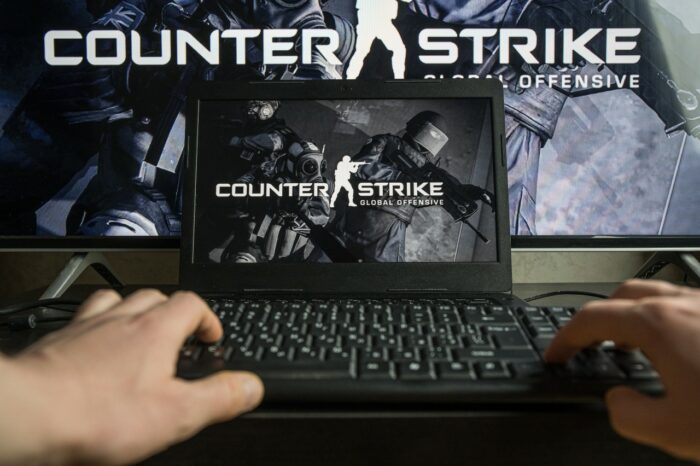Top Class Actions’s website and social media posts use affiliate links. If you make a purchase using such links, we may receive a commission, but it will not result in any additional charges to you. Please review our Affiliate Link Disclosure for more information.

Counter-Strike Online Gambling Class Action Lawsuit Overview:
- Why: The parents are urging a federal judge to certify a proposed class action lawsuit lodged against the video game maker in 2016.
- Who: Parents who say their teenage sons were lured into online gambling by Valve Corp., the creator of widely popular video games including Counter-Strike: Global Offensive.
- Where: If approved, Class Members would include parents nationwide who funded their children’s video game habits.
Parents of children who say their teenagers were lured into online gambling by the maker of video game Counter-Strike are pushing to move their class action lawsuit to the next stage.
Plaintiffs Grace Galway and Brenda Shoss, both parents of sons who played Counter-Strike as teens, filed a motion for class certification in their lawsuit against Valve Corp Sept. 28 in a Washington district court.
The pair first filed the class action lawsuit in 2016, alleging their sons were illegally lured into online gambling by Valve Corp., the creator of widely popular video games including Counter Strike: Global Offensive, Dota2 and Team Fortress 2.
They allege their children gambled away thousands of dollars on Valve Corp.’s online gaming platforms, making the company in violation of the Washington Consumer Protection Act and specific state statutes that outlaw gambling.
Teen Gambling With Counter-Strike ‘Skins’ Loses $20K
The moms alleges that Valve Corp. has set up an illegal online gambling ecosystem. They say, in the company’s online video games, players can use real money to buy virtual weapons called “skins” that they can use while playing Counter-Strike.
Through Valve Corp.’s Steam platform, players can buy, sell and trade skins, and Valve Corp. takes a 15 percent fee for each skin sale. But skins, as the plaintiffs tell it, also work like gambling chips. After purchasing skins for real money, players can use those skins to place online bets on professional Counter-Strike matches.
Galway says her son Jesse Plum began using Steam in June of 2015, when he was 14 years old. He made several purchases through Steam, predominantly using her credit card and PayPal accounts.
“Eventually, Jesse had accumulated winnings of approximately $20,000 worth of skins, and, as is a common risk of unsupervised gambling by minors as described by Plaintiffs’ experts, he continued gambling irresponsibly and lost it all,” the motion for class certification states.
Shoss’ son, Elijah Ballard, began using Steam in August of 2012, when he was 13 years old. Many of his purchases were made through a PayPal account linked to a custodial bank account funded by Shoss.
“Elijah would also frequently overdraw his custodial bank account, forcing Plaintiff Shoss to deposit additional funds into the account to prevent the overdrafts from adversely affecting her credit score,” the motion states.
The plaintiffs are proposing to represent a Class consisting of all persons in the nation who either purchased skins or are parents of children who purchased skins while playing one of Valve Corp’s games, including CounterStrike:Global Offensive, Dota2 and Team Fortress 2.
They seek restitution of all money wrongfully obtained by Valve Corp through the alleged online gambling and a court order barring the company from continuing to engage in the unlawful, unfair or deceptive practices.
“Loot boxes” have also been targeted as illegal gambling by parents and players in a class action lawsuit filed against the makers of Pokémon Go this summer.
Have you or your children lost money playing Counter-Strike or another online video game? Let us know your experience in the comments!
The plaintiffs are represented by attorneys Kim D. Stephens and Jason T. Dennett of Tousley Brain Stephens PLLC, Jasper D. Ward IV, Alex C. Davis and Patrick Walsh of Jones Ward PLC, and Paul C. Whalen of the Law Office of Paul C. Whalen PC.
The Counter Strike Underage Gambling Class Action Lawsuit is G.G., et al. v. Valve Corp., Case No. 2:16-cv-01941, in the U.S. District Court for the Western District of Washington.
Don’t Miss Out!
Check out our list of Class Action Lawsuits and Class Action Settlements you may qualify to join!
Read About More Class Action Lawsuits & Class Action Settlements:
- Activision Blizzard Agrees to $18 Million Settlement With EEOC After Toxic Workplace Probe
- Class Action Alleging Google Monopolized Advertising Market Paused by Judge
- Class Action Claiming Clash Royale Video Game Makers Promote Gambling Tossed
- Amazon Warehouse Workers Forced To Come In Early, Stay Late, Without Pay, Says Class Action















9 thoughts onCounter-Strike Class Action Seeks Certification Amid Claims Teens Were Lured Into Online Gambling
I lost plenty of money with two kids buyi ng this to need to buy that cuz you need to keep buying buying buying to play play play
MY SON LOST PLENTY OF MONEY BUYING SKINS.
Add me
Please add me
Please add me
Please add me
Add me
add me
Add me